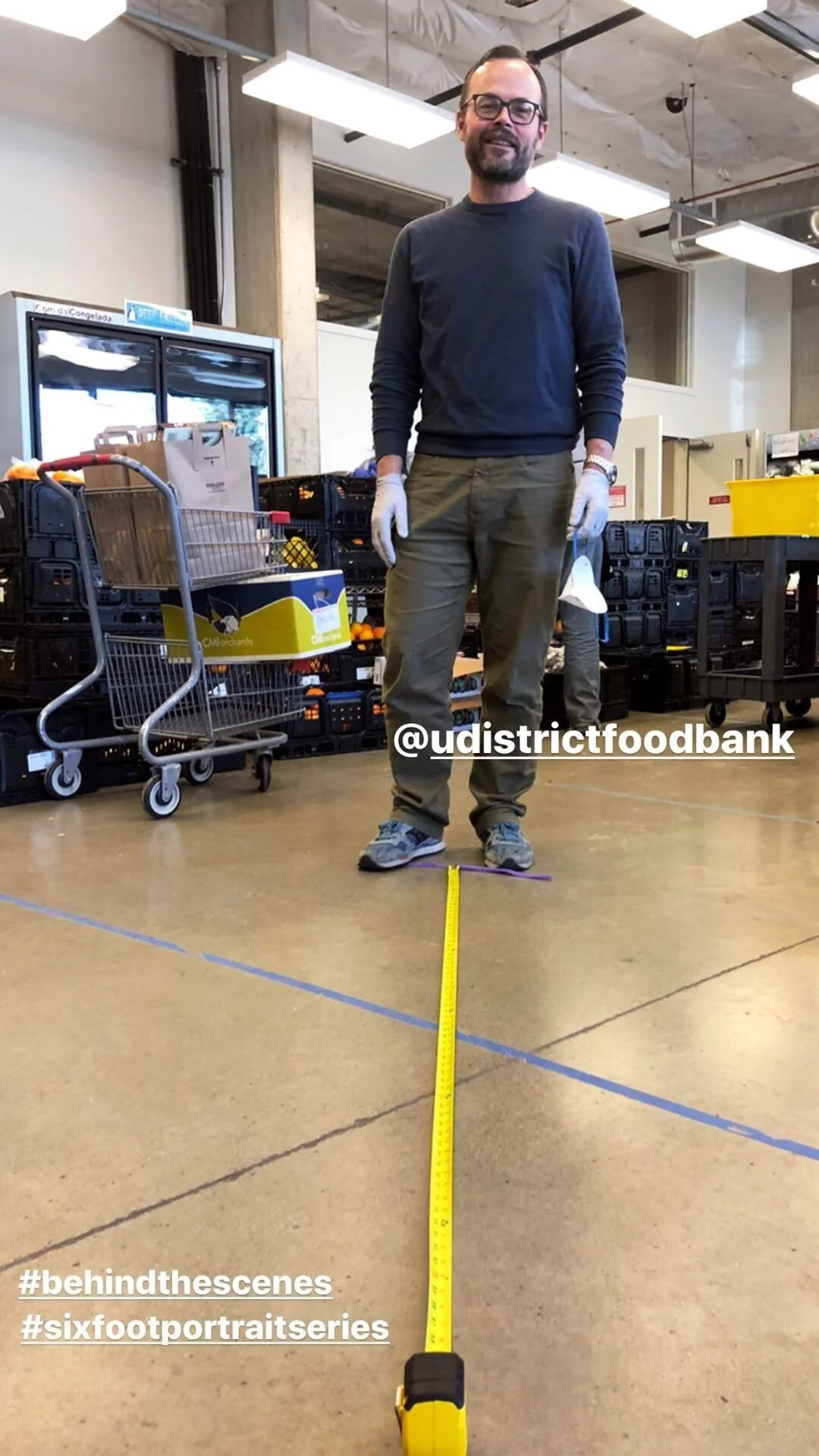University District Food Bank - Joe Gruber
Joe Gruber - University District Food Bank
Joe Gruber - Interview Transcript
You know the community response has been tremendous. You know initially, folks really reached in and said great I want to volunteer, how 'bout making a donation. But I think what we are preparing for is kind of then the next set, right? I think the hangover after the pandemic has kind of, maybe not normalized but kind of passed it's peak. All right, and I think, you know, we look at this as sort of the government is doing what it can to flatten the curve and reduce the likelihood of it, kind of, having a strong uptick. But what I think we look at then, kind of going forward the next 12, 20 weeks, you know, to a year right is sort of like what's the after effects on the availability of individuals to volunteer in our community, but also more importantly the donations that we're gonna experience. I think that's the realistic, you know, pieces. There's a lot of people who are gonna be displaced as a result of this pandemic. And so for us it's how do we be a resource for them and remain viable.
So we have moved to a, kind of like, personal shopper system for all our customers now. Who opt to coming in to the food bank. So for those that present themselves to food bank, they no longer are invited into the space to shop on their own. We've created a kind of one time use form that they complete that basically allows them to identify their preferences, their needs and then we have a small team of personal shoppers who kind of facilitate the box construction or the bag construction for them. So that we're getting them still the fresh fruits and vegetables, the dried and canned goods, and then allowing them a little bit of personalization as far as if you don't like something or really would like something more, you can ask for certain items and we can always go search for them. You know, it's not a good replacement for what we used to have at the grocery store but it really does promote social distancing.
So we think we have a model that allows us to insulate us, our work, as best we can. We have brought on new staff, some temporary staff to account for the extra work that we need to do. We'v e also expan ded our hours which is kind of interesting to think that we have gotten to be open more hours. But we really are trying to look for opportunities to let our customers social distance themselves. So, we've opened earlier on three of our days, we've actually added a weekend day, so Saturday morning. And so the intent is that, you know, we know we're gonna get busier as more and more people are impacted negatively by stay-at-home orders and closures of businesses. And so for us it's planning now to be, kind of, ready to deal with, kind of, the steady climb of costumers that we're gonna experience.
There were a lot of our peers who lost their fundraising event this spring, right? Because nobody could gather. You know, whether or not we're allowed to have one in the fall, we don't know. We'd like to think that's the case. But we really are trying to figure out, like, what does that look like if we can't have something. You know, and how do we protect the donations that would be a result of that. And then also being realistic, you know? An auction works for us, but it relies a lot on community members to make donations, right? If those businesses aren't there, or aren't able to make a donation because in all honesty, they're standing in the food bank line as well when they're not open for business. You know, we need to think about okay what's the new model by which we would do some fundraising. So I think that's the next, it's not the operational side of things, it's what keeps Paul up at night, you know as we think through like sort of how do we, kind of, manage the next iteration of sort of how we are for the slow recovery process.
Government's gonna be an important ally for us, but I have to say I'm worried about government because, you know, we live in a very regressively taxed state, right? The city revenues are directly dependent upon the success of business in the city limits, right? And the B&O tax. And, you know, what are we doing? We are closing businesses for a month and a half, two months, you know, the amount of revenue that the city is gonna have as their budgets is gonna be significantly reduced, right? But they're in important partner of ours, right. They do provide a significant amount of funding, right? I would miss it if it were gone. Their ability to be a partner going forward is critical but how do we help promote that too, right? I would love to think that this is a great time to start talking about a more balanced and fair tax system across the state, right? 'Cause rural communities are gonna be as impacted by this, or more so. So, is it the right moment? I don't know.







